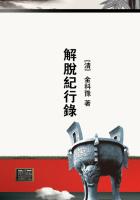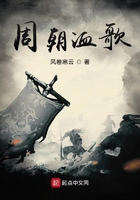"I reckon she looked so," continued Mrs. McKinstry, with tolerant abstraction. "She allowed to do herself credit in one of them new store gownds that she got at Sacramento. At least that's what some of our men said. Late years, I ain't kept tech with the fashions myself." She passed her fingers explanatorily down the folds of her own coarse gown, but without regret or apology.
"She seemed well prepared in her lessons," said the master, abandoning for the moment that criticism of his pupil's dress, which he saw was utterly futile, "but am I to understand that she is coming regularly to school--that she is now perfectly free to give her entire attention to her studies--that--that--her--engagement is broken off?"
"Why, didn't she tell ye?" echoed Mrs. McKinstry in languid surprise.
"SHE certainly did," said the master with slight embarrassment, "but"--"Ef SHE said so," interrupted Mrs. McKinstry abstractedly, "she oughter know, and you kin tie to what she says."
"But as I'm responsible to PARENTS and not to scholars for the discipline of my school," returned the young man a little stiffly, "I thought it my duty to hear it from YOU."
"That's so," said Mrs. McKinstry meditatively; "then I reckon you'd better see Hiram. That ar' Seth Davis engagement was a matter of hern and her father's, and not in MY line. I 'spose that Hiram nat'rally allows to set the thing square to you and inquirin' friends."
"I hope you understand," said the master, slightly resenting the classification, "that my reason for inquiring about the permanency of your daughter's attendance was simply because it might be necessary to arrange her studies in a way more suitable to her years; perhaps even to suggest to you that a young ladies' seminary might be more satisfactory"--"Sartain, sartain," interrupted Mrs. McKinstry hurriedly, but whether from evasion of annoying suggestion or weariness of the topic, the master could not determine. "You'd better speak to Hiram about it. On'y," she hesitated slightly, "ez he's got now sorter set and pinted towards your school, and is a trifle worrited with stock and them Harrisons, ye might tech it lightly. He oughter be along yer now. I can't think what keeps him." Her eye wandered again with troubled preoccupation to the corner where her husband's Sharps' rifle stood. Suddenly she raised her voice as if forgetful of Mr. Ford's presence.
"O Cressy!"
"O Maw!"
The response came from the inner room. The next moment Cressy appeared at the door with an odd half-lazy defiance in her manner, which the master could not understand except upon the hypothesis that she had been listening. She had already changed her elaborate toilet for a long clinging, coarse blue gown, that accented the graceful curves of her slight, petticoat-less figure. Nodding her head towards the master, she said, "Howdy?" and turned to her mother, who practically ignored their personal acquaintance.
"Cressy," she said, "Dad's gone and left his Sharps' yer, d'ye mind takin' it along to meet him, afore he passes the Boundary corner.
Ye might tell him the teacher's yer, wantin' to see him."
"One moment," said the master, as the young girl carelessly stepped to the corner and lifted the weapon. "Let ME take it. It's all on my way back to school and I'll meet him."
Mrs. McKinstry looked perturbed. Cressy opened her clear eyes on the master with evident surprise. "No, Mr. Ford," said Mrs.
McKinstry, with her former maternal manner. "Ye'd better not mix yourself up with these yer doin's. Ye've no call to do it, and Cressy has; it's all in the family. But it's outer YOUR line, and them Harrison whelps go to your school. Fancy the teacher takin' weppins betwixt and between!"
"It's fitter work for the teacher than for one of his scholars, and a young lady at that," said Mr. Ford gravely, as he took the rifle from the hands of the half-amused, half-reluctant girl. "It's quite safe with me, and I promise I shall deliver it into Mr. McKinstry's hands and none other."














